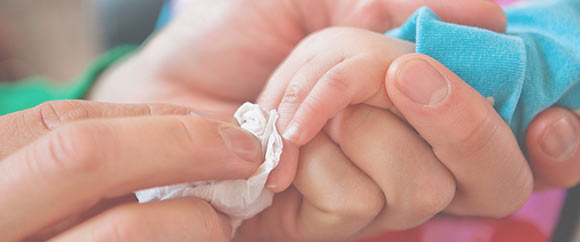| |
 |
Hello [*data('91.salutation')|html*],
You might have heard about the wonders of bath time – but when's a good time to start splashing around? Well, a daily bath isn't essential until babies start to crawl and get messy. But a short dip in the tub three times a week is a nice way of soothing baby and getting them ready for bed. Floating no doubt reminds them of life in the womb.
P.S. Not at week 3? Update your baby's birth date here. |
| |
|
 |
| |
 |
 |
| |
Week 3 News
Newborn babies are so delicate that new mums often prefer to ‘top and tail' wash at first: wiping face, neck, hands and bottom. But when it's time for a proper wash, have everything at hand before you start – you should never rush off and leave a baby alone in a bath. Take a look at our guides to top and tailing and bathing for more help on important questions like the temperature of bathwater. |
| |
|
| |
|
 |
| |
 |
|
|
The Expert View
It's important to look after yourself too, so take every chance you can to get some rest. This can be harder than it sounds, because some new babies need feeding as often as every couple of hours. So when your baby has been fed, put your partner on care duty and get some well-deserved shut eye! |
| |
| |
| |
| |
|
| |
Need to know
Make sure that your little one has finished one breast before offering another. That's because there are two types of milk - the first is to quench thirst and the second (‘hindmilk') is full of healthy fats. If you swap breasts halfway through feeding, your baby might not get the fatty milk they need to grow. |
| |
|
| |
| |
|
|
 |
| |
| |
 |
|
 |
| |
 |
|
|
Tip: Water on hand
Get into the habit of keeping a glass of water nearby when breastfeeding. You might find that you become thirstier whilst breastfeeding – it's important to stay hydrated and it's not easy to get up once baby is latched. |
| |
| |
| |
| |
|
| |
Tip: Mastitis
Some breastfeeding mums suffer from mastitis, an inflammation of the breast which can be very painful. We have some tips to avoid and treat it. If you're at all concerned, speak to your midwife or GP, who may also prescribe antibiotics. |
| |
|
| |
| |
|
|
 |
| |
|
|